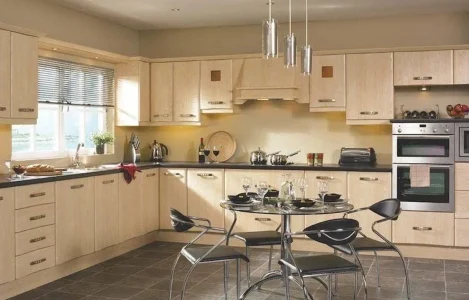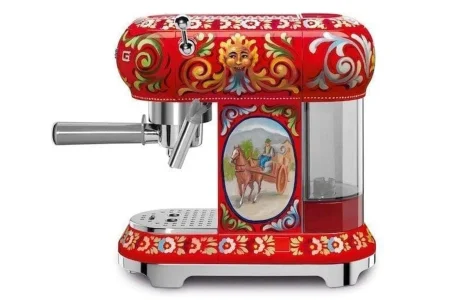With the recent tragedy of the Grenfell Tower inferno fresh in our minds, many of us are assessing the safety of our own homes, especially our kitchens.
Fire safety in your kitchen is of paramount importance as this is where most domestic fires begin, as appears to be the case with this recent horrific incident in London.
So what should you do and what do you need to know to keep you and your family safe from fires in your home?
[Related reading: Kitchen Safety Tips for a Child-Safe Kitchen and more]
Fire Safety In Your Kitchen: Make Your Kitchen Safe
It goes without saying that the best way to prevent people, pets and property being hurt and lost in domestic fires is to avoid such fires in the first place. Below you will find a list of recommendations and advice for preventing fires from starting in your kitchen.
General Electrical:
- Always keep appliances and leads away from water
- Ensure that small appliances like toasters and fryers are kept clean and in good working order
- Don’t overload plug sockets, as many kitchen appliances use a lot of power and overloading the socket may cause extra heat which could lead to a fire starting
Cooker:
- Avoid electrical leads from trailing or lying over any part of the cooker
- Never hang tea towels or cleaning cloths over the cooker
- Always keep your oven clean and free from debris that could cause a fire
Microwave:
- Never put metal objects into a microwave
- Never attempt to dry clothing in a microwave
Washers and Dryers:
- All high-speed appliances, such as washing machines and tumble dryers, should be serviced annually
- Turn off large appliances overnight
Fire Safety In Your Kitchen: Fire Safety Equipment
Fire extinguishers and fire blankets can make a huge difference should a fire start in your kitchen. Without any proper safety equipment you should NEVER attempt to fight a fire. However, if you have the correct fire extinguishers and equipment to hand, tackling smaller kitchen fires can be the difference between redecorating your kitchen or moving away from your burned down home with just the possessions you escaped with.
Fire Extinguishers:
- There are a number of domestic fire extinguishers available to buy for your kitchen and choosing the right one is very important. Due to the presence of hot oils and electrics in the kitchen, you should never use water-based extinguishers. Instead you should opt for ABF chemical or wet chemical extinguishers, although the cost of a clean up after using a wet chemical fire extinguisher should also be considered.
Fire Blankets:
- A fire blanket is a must for all kitchens. These invaluable devices are able to control smaller fires with little mess.
Fire Alarms:
- While they can be a nuisance, constantly going off while you’re cooking, fire alarms provide a potentially life-saving alert if smoke is detected.
If you do buy and install fire fighting equipment into your home, you need to make sure that every item meets the appropriate British Standard Specification and that they carry the kite mark. You should also ensure that you and your family are properly trained to fight smaller fires in the kitchen. You can find training courses from local fire prevention companies and governing bodies.
For more information about fire safety and to see how a new fitted kitchen could reduce your risk of having a fire start, contact us today.




